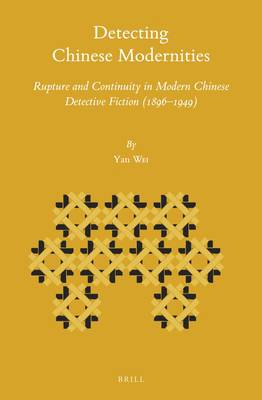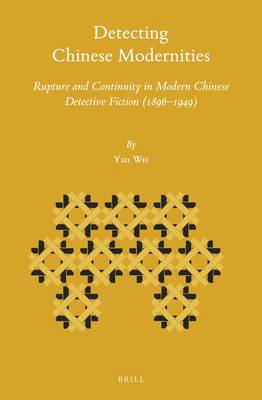
- Afhalen na 1 uur in een winkel met voorraad
- Gratis thuislevering in België vanaf € 30
- Ruim aanbod met 7 miljoen producten
- Afhalen na 1 uur in een winkel met voorraad
- Gratis thuislevering in België vanaf € 30
- Ruim aanbod met 7 miljoen producten
Zoeken
Detecting Chinese Modernities
Rupture and Continuity in Modern Chinese Detective Fiction (1896-1949)
Yan Wei
€ 276,45
+ 552 punten
Omschrijving
In Detecting Chinese Modernities: Rupture and Continuity in Modern Chinese Detective Fiction (1896-1949), Yan Wei historicizes the two stages in the development of Chinese detective fiction and discusses the rupture and continuity in the cultural transactions, mediation, and appropriation that occurred when the genre of detective fiction traveled to China during the first half of the twentieth century. Wei identifies two divergent, or even opposite strategies for appropriating Western detective fiction during the late Qing and the Republican periods. She further argues that these two periods in the domestication of detective fiction were also connected by shared emotions. Both periods expressed ambivalent and sometimes contradictory views regarding Chinese tradition and Western modernity.
Specificaties
Betrokkenen
- Auteur(s):
- Uitgeverij:
Inhoud
- Aantal bladzijden:
- 292
- Taal:
- Engels
- Reeks:
- Reeksnummer:
- nr. 150
Eigenschappen
- Productcode (EAN):
- 9789004431270
- Verschijningsdatum:
- 28/05/2020
- Uitvoering:
- Hardcover
- Formaat:
- Genaaid
- Afmetingen:
- 155 mm x 235 mm
- Gewicht:
- 559 g

Alleen bij Standaard Boekhandel
+ 552 punten op je klantenkaart van Standaard Boekhandel
Beoordelingen
We publiceren alleen reviews die voldoen aan de voorwaarden voor reviews. Bekijk onze voorwaarden voor reviews.











